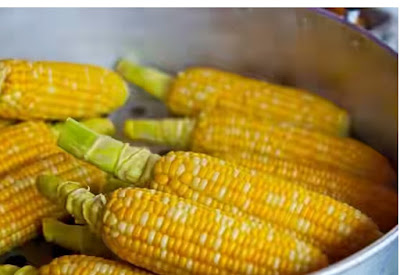12 Things You Must Know about These Vegetables and Your Health
12. Bell Peppers
Bell peppers are on the Dirty Dozen list, but that’s not the only thing to consider when deciding whether or not to eat them. Peppers are part of a group of veggies called nightshades, and some claim that they cause inflammation in the body.Chronic inflammation is linked to the development of all kinds of ills, including cancer, diabetes, and heart disease, not to mention joint and arthritis pain.
Peppers also contain the alkaloid solanine, which is known to disrupt nerve function in some people and can cause twitching, trembling, and convulsing. For people with rheumatoid arthritis, osteoarthritis, or any joint issues, we recommend avoiding bell peppers.
11. Cherry Tomatoes
If you aren’t troubled by nightshades, organic cherry tomatoes are a fantastic item to snack on – they contain loads of the antioxidant lycopene, which research shows protects against osteoporosis and prostate cancer.
10. Cucumber
They are also usually coated with a synthetic wax to preserve water content and give that smooth, shiny look that consumers crave. It’s not worth it for the aesthetics, though. That wax is made up of chemical contaminants you really shouldn’t be eating. Buy your cucumbers organic.
9. Brussels Sprouts
That’s due to the raffinose and sulphate content – raffinose, is a sugar that is not able to be digested in the stomach or small intestine, and ends up being fermented in the large intestine.
While that’s happening, sulphate is released. So not only do you feel gassy, your flatulence will be so pungent that there’s no denying it happened.
8. Celery
Though kind of bland and stringy, there is a surprising amount of nutrition in celery. However, it is really high up on the Dirty Dozen list, being coated with up to 68 hormone disrupting pesticides.Celery is also relatively tasteless, so we tend to dip it in unhealthy stuff in order to make it palatable. Still, as long as you buy organic and watch the toppings, celery can help you feel full without adding many calories to your daily diet.
7. Corn
This leads to sensitivities and allergies in some folks. Corn is also high in sugar and fed in massive quantities to cows in order to fatten them up, so imagine what it does to humans. Add the traditional butter and salt, and corn is a veggie that should be enjoyed very much in moderation, even organic.
6. Eggplant
Vegetarians and meat-eaters alike love to prepare eggplant because it soaks up flavor really nicely. However, that sponge-like tendency means that it also holds all the salt and fat it can find as well.
Beyond being aware of how you prepare it, know that eggplant is a nightshade and has one of the highest levels of solanine amongst veggies in that category.
It also contains oxalates, which can contribute to kidney or gallbladder stones. For people with chronic inflammation, joint issues, or predisposition to stones, avoid eating eggplant.
5. Potatoes
Skinning removes vital fiber and then frying and salting compromises the potassium and vitamin C content, not to mention creates cancer-causing acrylamide. By all means, eat an organic baked potato now and again, but don’t leave the skin behind and go easy on the butter and salt.
Good alternatives to white potatoes include sweet potatoes, mashed cauliflower, and jicama.
4. Spinach
That puts your family at risk of consuming carcinogens, hormone disrupters, and neurotoxins. Spinach is also relatively high in oxalates and purines, both of which can lead to kidney stones and gout. Spinach is best avoided by anyone who is prone to stones.
3. Conventional Kale
Kale is packed with calcium, vitamin A, vitamin K, and iron. Unfortunately, the non-organic version is contaminated with organophosphates that are known to be toxic to a human’s nervous system.
It also contains oxalates, so even the organic version should be avoided by people with kidney or gallbladder issues. Finally, kale is a goitrogenic food that can cause goiters in people with an unhealthy thyroid.
2. Squash
Summer squash is sweet, tasty, and chock full of fiber, minerals, and vitamins, but it’s on the Dirty Dozen list. Much like kale, conventional summer squash is grown with organophosphate insecticides and often comes with the residue of 41 pesticides.Most of these are known hormone disrupters, and even worse perhaps, are toxic to bees. A dying bee population threatens our entire agricultural system. Summer squash is great to eat organic for most people, but also contains oxalates and should be avoided by people with kidney or gallbladder stones.
1. Canned Vegetables
You may notice that most baby bottles and sippy cups are now labeled BPA-free, but BPA doesn’t become magically safe after toddlerhood! Avoid canned foods unless the produce inside is organic and the can is labeled as BPA-free.
Vegetables are part of a healthy diet for just about everyone, but certain people may need to limit their consumption of veggies in the nightshade and cruciferous families.
We always encourage folks to buy organic as much as possible, not only to avoid the poisonous pesticide residue, but also to support local farmers using sustainable methods.










